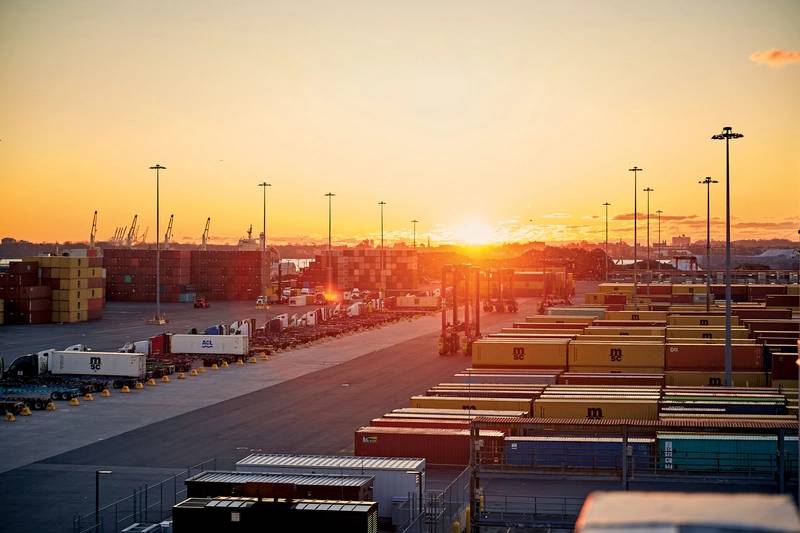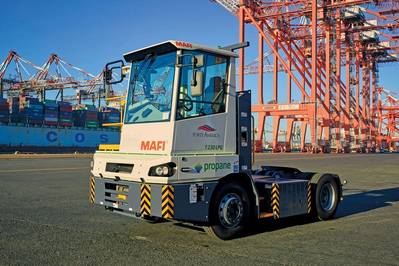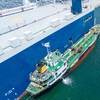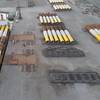ENERGY INSIGHT: Whatever the Weather, Propane Keeps Ports Moving
How propane offers unmatched reliability and resiliency when severe weather strikes
Ports are critical hubs for global trade and shipping logistics, and they can’t afford to slow down due to extreme weather events. Especially in the Northern U.S., winter storms bring extreme freezing temperatures that can quickly create issues for any diesel or electric engines powering port equipment. Meanwhile, ports along the Gulf Coast and Atlantic Coast must be prepared for hurricanes every year that can knock out the power grid and slow down operations for days, significantly impeding port operations.
This is where propane has emerged as a reliable and resilient alternative fuel source for port operations. Because it is a clean, reliable, efficient and abundant alternative to gasoline and diesel, propane continues to be adopted for forklifts, port tractors, generators, and light- and medium-duty trucks that keep ports operating in any conditions.
- Performance in Freezing Temperatures
A significant concern in colder climates is the risk of diesel fuel gelling when the temperature drops well below freezing. This scenario can lead to clogged fuel lines and inoperable engines. As a result, ports in regions with harsh winters must perform additional winterization maintenance on their diesel equipment. Specifically, diesel engines may require fuel additives, engine block heaters, or other modifications to function properly below 32°F/0°C. Diesel engines also must idle longer before operation to get the engine warmed up, burning additional fuel. All this costs fleet operators additional time and money.
Propane, on the other hand, does not gel in cold temperatures because it remains in a vapor state down to -44°F. That’s why propane engines don’t experience the same cold-start issues, spend less time idling or warming up, and are overall more reliable in extreme cold.
Propane can power everything from light- and medium-duty vehicles, terminal tractors and forklifts to commercial generators and marine vessels. For example, electric-powered forklifts may need to recharge throughout a shift, but propane forklifts operate at 100 percent for the duration of a cylinder.
 Image courtesy PERC
Image courtesy PERC
- Reliability During Severe Weather Events and Power Outages
Ports along the East Coast, Gulf Coast, and other areas with major storms are vulnerable to the devastating effects of seasonal weather. As we have seen from recent hurricanes across the Southeastern U.S., these storms’ high winds, torrential rains, and potential for flooding can all disrupt port operations. But as storms move on and cleanup begins, knocked-out power grids can continue to keep vehicles and equipment at a standstill.
Unlike electric-powered equipment that requires regular recharging, or diesel and gasoline-powered equipment that relies on electric-powered refueling pumps, propane vehicles remain operable even when local electric grids fail. Cranes, forklifts, and backup generators powered by propane can provide an uninterrupted flow of operations, ensuring that vital port functions—like loading and unloading containers or managing heavy cargo—can continue even in a storm’s aftermath.
- Infrastructure Readiness
Another big advantage of propane is that it can easily be stored for long periods of time and transported wherever it’s needed most. Propane doesn’t degrade over time like gasoline or diesel, so large operations may store up to 100,000 gallons of reserve propane on-site to provide a buffer against supply disruptions.
Propane can also be used in backup generators to provide emergency power to critical systems during prolonged outages. This flexibility is crucial to ensure the continuity of port operations, especially when the electrical grid’s restoration may take days or even weeks.
Most of the equipment powering hard-working U.S. ports could be running cleaner and more cost-effectively with propane. A critical part of global supply chains, ports and their operations must be resilient enough to withstand the many challenges posed by freezing winters, hurricanes, and other extreme weather events. Propane offers a reliable, efficient, and abundant alternative to diesel or electric power, no matter the weather.
About the Author: Jim Bunsey is senior manager of business development for the Propane Education & Research Council. He can be reached at [email protected].













